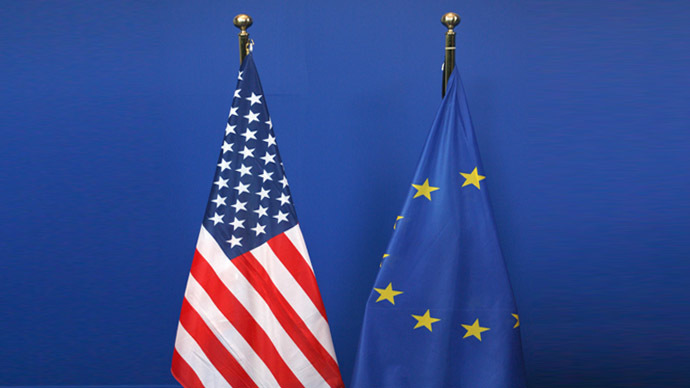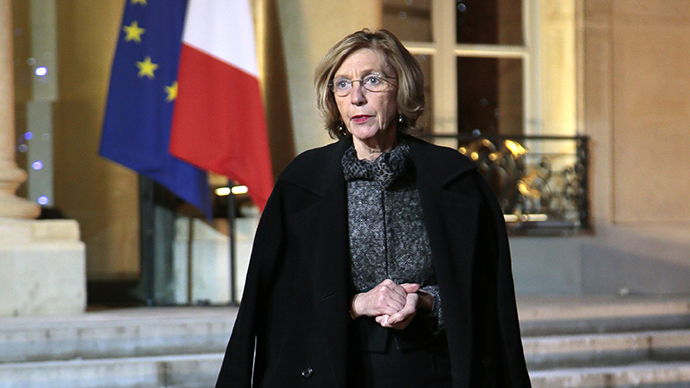France wants to delay the ‘biggest bilateral trade deal in history' by 2 weeks after learning the USA was allegedly tracking economic communications of EU member states. But Germany says they should go ahead as planned.
"It would seem wise to us to suspend them for a couple of
weeks to avoid any controversy and have the time to obtain the
information we've asked for," French government
spokeswoman Najat Vallaud-Belkacem said Wednesday.
The trade agreement negotiations, which could
potentially be a key factor in reversing the slow economic
climate, are set to commence Monday in Washington DC.
"It's not a question of halting the negotiations,"
Vallaud-Belkacem said, adding that espionage and trade are two
'closely related' issues.
French President Hollande said Monday there could be no negotiations unless the US could guarantee they would halt their spying operations on EU allies.
Despite surveillance claims, Germany wants the talks to go on as
planned, Chancellor Angela Merkel's spokesman said shortly after
France raised a 2-week delay proposal.
"The Commission wants to start negotiations on July 8, and in
this it has the support of the German government," said state
spokesman Steffen Seibert.
"We want this free trade agreement and we want to start the talks now," he said.
After the news broke Monday, EU leaders demanded answers. French
Prime Minister Hollande said the spying must stop
'immediately' and Chancellor Merkel said if allegations
prove to be true, it would be “unacceptable
Cold War-style behavior.”
US Secretary of State John Kerry said he couldn't confirm the authenticity of the spying claims, and Obama tried to defend the actions, insinuating all world intelligence services preform similar surveillance.
"That's how intelligence services operate," Obama said
Monday.
The agreement would be a “once in a generation prize,” which could add as much as $157 billion to the EU economy, over $125 billion to the US economy and as much as around $133 billion to the rest of the word, British Prime Minister David Cameron said at the summit, adding it could add two million extra jobs, more choices and lower consumer prices.


